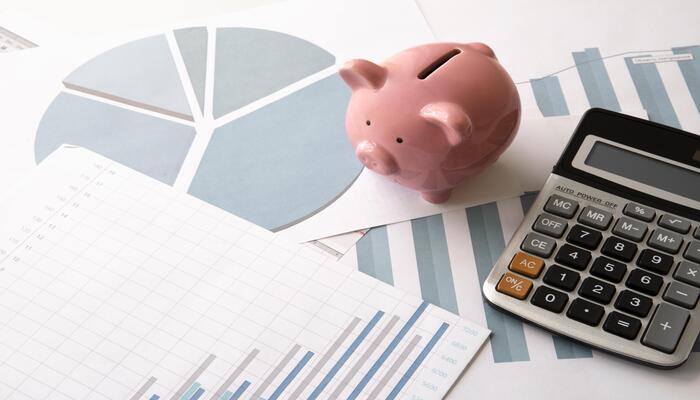Avoiding debt and building a secure financial future is essential for achieving financial stability and independence. With proper planning and financial discipline, anyone can create a solid foundation for their economic future.
1. Understanding Your Financial Situation
The first step to avoiding debt is to understand your current financial situation. This includes knowing your income, expenses, and any existing debt. Create a detailed budget that includes all your sources of income and monthly expenses. Use financial apps or spreadsheets to track your finances in an organized manner. This control is crucial for identifying areas where you can save and avoid unnecessary spending.
2. Setting Clear Financial Goals
Defining clear financial goals is fundamental to avoiding debt and building a secure financial future. Set short, medium, and long-term goals, such as paying off existing debts, creating an emergency fund, and investing for retirement. Well-defined goals help maintain focus and motivation, as well as provide a clear direction for your finances. Visualizing your objectives will make you more inclined to make financial decisions aligned with these goals, avoiding financial pitfalls.
3. Creating an Emergency Fund
An emergency fund is essential to avoid debt in unexpected situations. This fund should cover at least three to six months of basic expenses, such as rent, food, and essential bills. Having an emergency fund will prepare you to deal with unforeseen events without resorting to loans or credit cards, thus avoiding the accumulation of debt. Start building your emergency fund by depositing a small amount regularly, and increase the amount as your financial situation improves.
4. Controlling Spending
To avoid debt, it is crucial to control spending and live within your means. Avoid impulse purchases and prioritize needs over wants. Make a list before shopping and compare prices to save money. Consider cutting unnecessary expenses, such as subscriptions to services you don’t frequently use. Another effective strategy is to adopt a more minimalist lifestyle, focusing on acquiring only the essentials and valuing experiences over material goods.
5. Using Credit Wisely
Using credit wisely is fundamental to avoiding debt. If you need to use a credit card, make sure to pay the full balance each month to avoid interest. Limit the number of credit cards you have and avoid using the maximum limit. Before applying for a loan, evaluate whether it is truly necessary and if you have the capacity to repay it. Additionally, look for credit options with the lowest interest rates and most favorable conditions, comparing different offers on the market.
6. Investing for the Future
Investing is an effective way to build a secure financial future. Consider diversifying your investments, such as stocks, bonds, real estate funds, and retirement plans. Consulting a financial advisor can help create an investment strategy suitable for your profile and financial goals. Remember that investments should be made cautiously and after thorough research. It is also important to reinvest the profits obtained, taking advantage of the compounding effect to grow your wealth over time.
7. Educating Yourself Financially
Financial education is a powerful tool for avoiding debt and building a secure future. Seek information about personal finance, attend courses and workshops, and read books on the subject. The more you know about financial management, the better prepared you will be to make informed decisions and avoid financial traps. Additionally, it is helpful to follow blogs and podcasts by financial experts who offer practical and up-to-date tips to improve your financial health.
8. Keeping Financial Records
Keeping detailed financial records is essential for monitoring your progress and making adjustments as necessary. Record all your income and expenses and review your budget regularly. This will allow you to identify spending patterns, adjust your financial goals, and ensure you are on the right track to avoid debt and build a secure future. Use digital tools that facilitate financial tracking and provide detailed reports on your financial performance.
9. Paying Off Existing Debts
If you already have debts, it is crucial to develop a plan to pay them off as quickly as possible. Prioritize paying off debts with the highest interest rates and consider consolidating debts to obtain lower interest rates. Negotiate with creditors to obtain better payment terms and avoid incurring new debts while working to pay off existing ones. Timely debt repayment not only improves your financial health but also positively impacts your credit score.
10. Planning for Retirement
Planning for retirement is an important step in building a secure financial future. Start contributing to a retirement plan as early as possible and take advantage of the tax benefits associated with these contributions. Calculate how much you will need to maintain your standard of living in retirement and adjust your contributions as necessary. Also, consider additional sources of income, such as investments and properties, to ensure a stable income flow in retirement.
The Path to Financial Stability and Security
Avoiding debt and building a secure financial future requires discipline, planning, and financial education. Understanding your financial situation, setting clear goals, creating an emergency fund, and controlling spending are fundamental steps. Using credit wisely, investing for the future, and keeping detailed financial records are also essential strategies. By following these guidelines, you will be on the right path to achieving financial stability and ensuring a secure and prosperous future.





